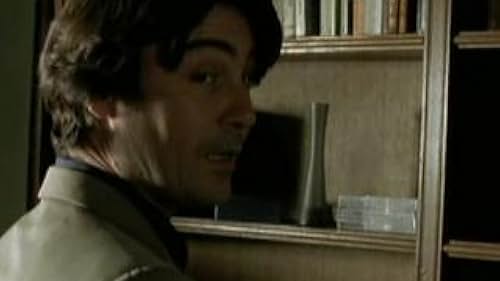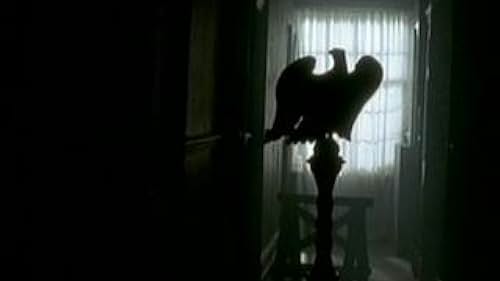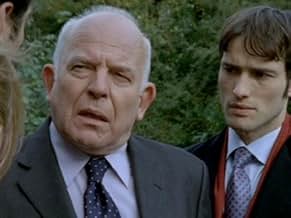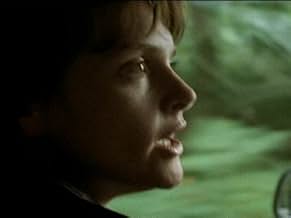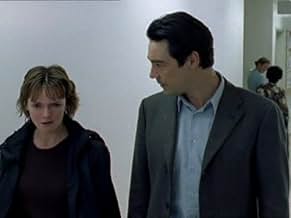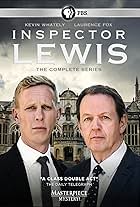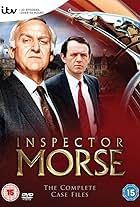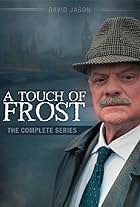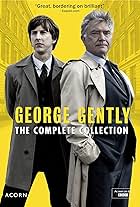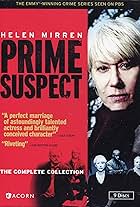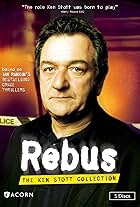British crime investigation series based around aristocratic, Oxford-educated Detective Inspector Thomas Lynley and his working-class assistant Sergeant Barbara Havers.British crime investigation series based around aristocratic, Oxford-educated Detective Inspector Thomas Lynley and his working-class assistant Sergeant Barbara Havers.British crime investigation series based around aristocratic, Oxford-educated Detective Inspector Thomas Lynley and his working-class assistant Sergeant Barbara Havers.
- Awards
- 1 nomination
Browse episodes
Storyline
Did you know
- TriviaSeason 1 car is a 1973 Jensen Interceptor Mk II. Season 2 car is a 1968 Bristol 410. One of only 79 made.
- ConnectionsFeatured in The Wright Stuff: Episode #17.111 (2012)
Featured review
I have now rewatched several of these, and have refined my appreciation.
The usual models for these sorts of projects is to distribute the episodes among different directors and screenwriters, assuming that the continuing characters are what matters. This series is different. The producers kept a firm hand on the way the episodes are framed; there is a consistent framework carried from one to the other that understand George's structure perhaps better than she does herself.
There is a murder or two. The dynamics of this murder happen in their own word, a world of madness or unraveled anger. The sense behind this is fantastically abstract, and is framed by a sort of soap opera centered on the events and characters that are suspects.
A more human, immediate layer — an entire third world — is the soap opera of a quite different nature in the lives of the continuing characters: Lynley and Havers. He is derived from Peter Wimsey, a second order aristocrat engaged in justice for his own reason. He has friends and lovers. Havers is an abrasive young lower class woman, struggling with family issues. This world is layered as well between Lynley and Havers.
One can easily imagine George seeing herself as Havers, watching and commenting on Lynley as he tries to understand the dynamics of the world he has entered to solve the crime, and find the embedded "world of motive."
This layered narrative format is understood by the producers of the series. Significant attention is paid to camera distance to register intimacy or lack of it. In particular, Havers is always the omphalos of the thing. Sharon Small is the actress who has taken on this central role and she is simply magnificent in it. She has the job of being a person in the thing, but that is an ordinary chore for an actor. She also has to be the observer and observer of the observer as the writer's surrogate. We never lose sight of the fact that this is a novelist's construction and she has included herself in the world as its origin.
Ted's Evaluation -- 3 of 3: Worth watching.
The usual models for these sorts of projects is to distribute the episodes among different directors and screenwriters, assuming that the continuing characters are what matters. This series is different. The producers kept a firm hand on the way the episodes are framed; there is a consistent framework carried from one to the other that understand George's structure perhaps better than she does herself.
There is a murder or two. The dynamics of this murder happen in their own word, a world of madness or unraveled anger. The sense behind this is fantastically abstract, and is framed by a sort of soap opera centered on the events and characters that are suspects.
A more human, immediate layer — an entire third world — is the soap opera of a quite different nature in the lives of the continuing characters: Lynley and Havers. He is derived from Peter Wimsey, a second order aristocrat engaged in justice for his own reason. He has friends and lovers. Havers is an abrasive young lower class woman, struggling with family issues. This world is layered as well between Lynley and Havers.
One can easily imagine George seeing herself as Havers, watching and commenting on Lynley as he tries to understand the dynamics of the world he has entered to solve the crime, and find the embedded "world of motive."
This layered narrative format is understood by the producers of the series. Significant attention is paid to camera distance to register intimacy or lack of it. In particular, Havers is always the omphalos of the thing. Sharon Small is the actress who has taken on this central role and she is simply magnificent in it. She has the job of being a person in the thing, but that is an ordinary chore for an actor. She also has to be the observer and observer of the observer as the writer's surrogate. We never lose sight of the fact that this is a novelist's construction and she has included herself in the world as its origin.
Ted's Evaluation -- 3 of 3: Worth watching.
Details
Contribute to this page
Suggest an edit or add missing content



